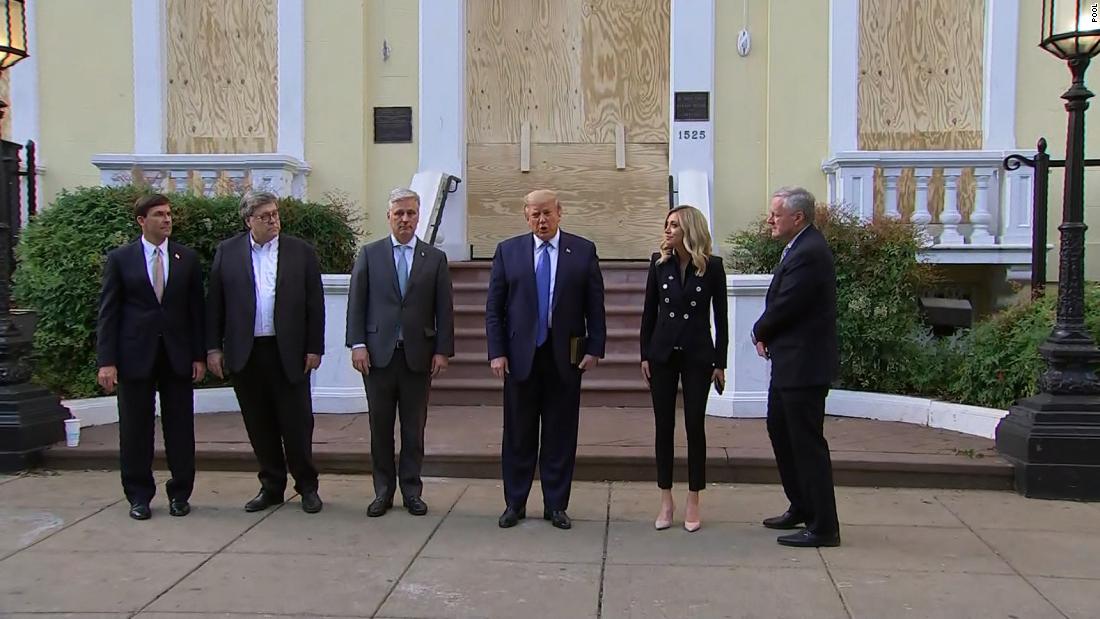
So while Trump's turn to the rhetoric of the despotic leaders he so admires had elements of farce, it opened a sinister new chapter in his presidency and a challenge to American norms.
Trump's transparent strongman act
Standing in the White House Rose Garden in front of American flags, with the crack of flash bangs audible, Trump threatened to invoke a centuries-old law to deploy federal troops to states.
"I will fight to protect you.
arsonists, looters, criminals, rider rioters, Antifa and others."
The gaslighting and emptiness of Trump's words was evident in television pictures that showed the crowd outside, which appeared young and a mixture of races and ethnicities, peacefully demonstrating moments before.
Before Trump spoke, Attorney General William Barr, a promoter of almost unfettered presidential power, stood grimly in Lafayette Park adjacent to the White House, tieless, hands in pockets staring at the crowd.
The sight of fleeing peaceful protesters amid smoke and the crack of crowd control bullets from riot police and soldiers with shields was itself a stain on fundamental US values.
It came on a day when the President's defense secretary, Mark Esper, started to refer to American cities hit by protests and looting as "battle space" and Trump supporter Rep.
His speech and action were already being lauded on Fox News and among prominent conservatives on social media Monday night, in a manner likely to encourage Trump to flex his powers even more.
Yet the fact he ordered US troops against peaceful protesters for a mere photo op shows how far he may be willing to go to use every tool of presidential power in the service of his reelection.
The act has been invoked several times to bolster local law enforcement, including during the Detroit riots of 1967 and the Rodney King riots in 1992.
But in Trump's hands, the act raises the possibility that the commander in chief, protecting his own political interests, could try to send soldiers into states against their will.
It seems like an almost unbelievable prospect, and in Trump's hands would represent an unprecedented politicization of the military that would be familiar from autocratic nations.
Several governors told CNN on Monday night that Trump has no power under the act to deploy troops without their request.
But the lesson of the last three years is that scenarios that appear unthinkable have a habit of coming true under a President who has little concern for constitutional constraints and believes the power of his office belongs to him.
Earlier, on a day in which he also spoke by phone to a genuine autocratic strongman, Russian President Vladimir Putin, who has used his powers against his own people, Trump had berated governors for being weak and in a conference call demanded that they fully utilize the National Guard to "dominate" the streets amid unrest.
While he mentioned Floyd -- who died a week ago in the latest example of police brutality against black Americans -- in his address, it was only in passing in a speech dedicated to fostering the impression of tough guy leadership.
